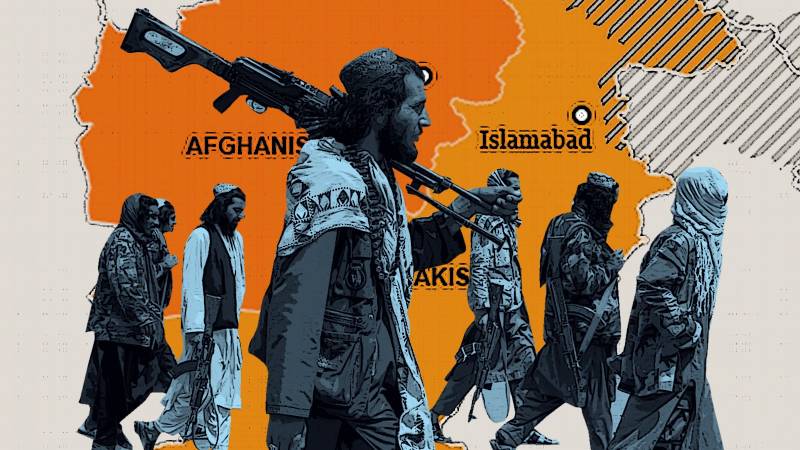
Hafiz Gul Bahadur, the militant commander hailing from the Datta Khel area of North Waziristan, was formerly associated with Jamiat-e-Ulema Pakistan (JUI-F) and at one time served as the press secretary of its student wing. During the period when Waziristan was a focal point for anti-Pakistan terrorism, he was recognized as a pro-Pakistan commander. In his 50s, Gul Bahadur was closely associated with the Haqqani Network. While he participated in Taliban operations against the Northern Alliance in Afghanistan, his full involvement in militancy intensified after the 9/11 attacks and the subsequent US invasion of Afghanistan, leading Haqqani network members to relocate to North Waziristan.
Gul Bahadur extended both shelter and support to members of the Haqqani Network and Arab associates of Al-Qaeda. Local residents assert that, despite not formally aligning with the Tehreek-e-Taliban Pakistan (TTP), he provided assistance whenever required. Founding his own group, named Shura Mujahideen-e-Waziristan, he ostensibly claimed neutrality in the conflict against the TTP by Pakistani security forces. However, in reality, he sheltered militants from both the TTP and Al-Qaeda.
Dilawar Wazir, a prominent journalist closely tracking the emergence of various militant groups in the former Federally Administered Tribal Areas (Ex-FATA), challenges the notion that Hafiz Gul Bahadur supported the TTP. According to Wazir, before the 2014 operation, Gul Bahadur took measures to prevent the TTP from gaining a foothold in North Waziristan. Presently, he maintains his distinct identity and remains unaffiliated with the TTP. However, some observers dispute this assertion, suggesting a closer relationship between Gul Bahadur and the TTP following the Afghan Taliban's takeover of Kabul. Dilawar Wazir, on the other hand, confirms that Gul Bahadur receives substantial support from the Haqqani network due to his historical affiliation with it.
Hafiz Gul Bahadur's faction commands significant influence in the region, bolstered by its ties to the Afghan Taliban, TTP, and his extensive combat background.
Renowned for his strategic prowess, Gul Bahadur deftly navigated a delicate equilibrium among Pakistani forces, the Haqqani Network, TTP, and Al-Qaeda. Significantly, he played a pivotal role in establishing the inaugural suicide camp for the Haqqani Network in the Datta Khel area of North Waziristan. This strategic move attracted a considerable number of drone strikes to the region. According to Datta Khel residents, drone attacks, among other factors, drew Gul Bahadur closer to the TTP, primarily a faction of the Mehsud tribe based in South Waziristan.
Hafiz Gul Bahadur's faction commands significant influence in the region, bolstered by its ties to the Afghan Taliban, TTP, and his extensive combat background. Notably, militants from the Jani Khel area of Bannu district and members of the Dawar tribe have aligned themselves with his faction. Given the residence of the Wazir tribe on both sides of the Pak-Afghan border, militants can easily traverse between Pakistan and Afghanistan.
Compounding the severity of the situation, his group poses a genuine threat to security forces, owing to its sway over the newly merged districts and adjacent areas of Bannu, Lakki Marwat, and Dera Ismail Khan.
Similar to agreements the government had forged with the TTP, Pakistan entered into an accord with the Hafiz Gul Bahadur group in 2006. This agreement stipulated that Gul Bahadur would refrain from conducting attacks within Pakistan. Additionally, it included a provision preventing him from dispatching militants into Afghanistan. However, the implementation of this agreement did not align with its intended spirit. Despite the terms, Gul Bahadur continued to send militants into Afghanistan and clandestinely buried bodies in North Waziristan, transported from the conflict zone in Afghanistan.
Upon the initiation of Operation Zarb-e-Azb in 2014 in North Waziristan, Hafiz Gul Bahadur, alongside other militant factions, relocated to the Khost province of Afghanistan. It was during this period that he forged a closer alliance with the TTP. Subsequently, representatives from North Waziristan elders acted as mediators, engaging in negotiations to dissuade him from participating in terrorist activities against Pakistan. Regrettably, these negotiations yielded no positive outcomes.
Insiders familiar with the situation have confidentially informed TFT that it is highly likely that Hafiz Gul Bahadur receives support from the Afghan government. This assertion is rooted in the fact that Sirajudin Haqqani, the head of the renowned Haqqani Network and the first deputy leader of Afghanistan, currently oversees the crucial Ministry of Interior, has a longstanding and close association with Hafiz Gul Bahadur.
Another factor, as observed by analysts monitoring the Afghanistan situation, is the belief within the Haqqani network that Pakistan supports the Daesh or the Islamic State Khurasan (IS-K) group. Daesh is known for carrying out attacks against Taliban leadership in Afghanistan.
There are two primary reasons why Hafiz Gul Bahadur turned against Pakistan. According to Dilawar Wazir, the main catalyst was the military operation in North Waziristan, during which his house and those of his commanders were bulldozed. Displaced and ending up in Afghanistan, some of his relatives and commanders lost their lives during the operation. Gul Bahadur expected leniency from the military, considering his group's perceived pro-Pakistan stance.
Another factor, as observed by analysts monitoring the Afghanistan situation, is the belief within the Haqqani network that Pakistan supports the Daesh or the Islamic State Khurasan (IS-K) group. Daesh is known for carrying out attacks against Taliban leadership in Afghanistan. Consequently, the Haqqani network and the Afghan Taliban leverage the TTP and Hafiz Gul Bahadur to exert pressure on Pakistan, aiming to discourage support for Daesh. In essence, insiders suggest that the Afghan Taliban are employing tactics similar to what Pakistan did during their resistance against American forces, as conveyed by an anonymous source.
The recent assault in Dera Ismail Khan, which led to the tragic loss of numerous soldiers, serves as a stark reminder of the grim challenges facing us. Pakistan finds itself in a critical juncture, demanding adept handling. This necessitates the government's proactive engagement at the highest echelons of diplomacy with the Afghan government, combined with assertive strategies aimed at seeking a resolution that mutually benefits both nations and their respective populations.

